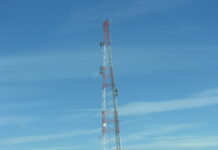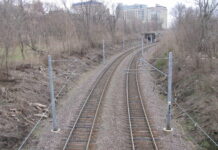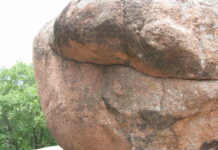Photo credit: DiasporaEngager (www.DiasporaEngager.com).
The media has reported that Palestinians in the West Bank (85%) and Gaza (52%) support Hamas’ October 7th actions. However, there has been less mention of the attitudes of the almost two million Arab living in Israel and East Jerusalem. More troubling, the little that has been mentioned, gives a false view of their estrangement from the state, ignoring the strong evidence that they are more sympathetic to the current plight of their Jewish neighbors than reported.
Recently, Ragjad Jaraisy and Ofer Dagam, directors of Sikkuy-Aufoq, an Israeli NGO doing constructive work in the Arab sector, pointed to the current risks Arab citizens face. They mentioned systemic discrimination and the repression experienced after the October 7th massacre:
A Palestinian doctor was suspended from his position, Palestinian students at colleges and universities have been punished, and other people have been arrested for social media posts that were often simply misunderstood by those who don’t speak Arabic.
As to the Gaza civilian casualties, they stated that Arab citizens “are connected by family ties, language, culture and history to their fellow Palestinians in Gaza — while living, working and studying side-by-side with Jewish Israelis in the very country that caused their people’s misfortune.” (emphasis added)
Unfortunately, Jaraisy and Dagan projected their mistaken beliefs onto Arab citizens. Survey data demonstrated that the war has brought Arab citizens closer to the Israeli state. For each year, 2016-2022, the share of Arab citizens who felt a part of Israel fluctuated between 39% and 43%. But directly after the Hamas attack, it increased to 70%; and even during November as the death and destruction in Gaza mounted, it only declined to 65%. This positive assessment was largest among Druze respondents (80%), followed by Christians (73%), and Muslims (62%). Indeed, the only subgroup for which it was less than 60% was those who voted for the ultra-nationalist Balad party (43%).
At the eight-week mark of the IDF offensive, a survey indicated that a minority of Arabs held the IDF solely responsible for the harm to Gazan civilians. Among Muslims, 60% held the IDF and Hamas equally responsible with 15.5% holding the IDF solely responsible, compared to 12% who held Hamas solely responsible. This reflected the fact that among Balad supporters, none held Hamas solely responsible but 29% held the IDF solely responsible. Among Christians and Druze, more than three times as many held Hamas solely responsible as those holding the IDF solely responsible.
Over the next five months, as war continued without an IDF victory or the return of more hostages, attitudes are interesting. An April survey asked, “Who has come off better in the war in Gaza — Israel or Hamas?” More Arab respondents think that Hamas, rather than Israel, has gained the upper hand (20% versus 14%, respectively). One-quarter thought both equally but 41% didn’t know. Interestingly, the only other group that thought Hamas had gained the upper hand were left-wing Jews (29% to 25.5%).
What Jaraisy and Dagan and others refuse to admit is that substantial improvements in the lives of Arab citizens have led them to be more willing to separate themselves from the Palestinians in the West Bank and Gaza. This is most illustrated by the improving situation of eastern Jerusalem Palestinians.
Mayor Nir Barkat changed decades of benign neglect by beginning to provide some needed reforms and improved services to eastern Jerusalem. Jerusalem’s new mayor, Moshe Lion, accelerated these changes. He began by cleaning up the streets and then improving basic infrastructure: the sidewalks, potholes in the streets, and community gardens. A particularly important improvement was made to the postal system. In 2010, postal services in eastern Jerusalem were barely functioning. A significant portion of the mail did not reach its destination, while much of what did arrive was delivered late. However, Leon added post offices, street signs, and house numbers, substantially improving service.
Arab residents of eastern Jerusalem have seen the benefits. Between 2010 and 2022, the share satisfied with garbage collection increased from 44% to 60%; with fire protection from 42% to 70%; and with ambulance responses from 46% to 59%. More than three-quarters of Arabs are satisfied with healthcare services, sewerage, water, and electricity.
Leon’s efforts also focused on providing an educational system that would prepare students for the matriculation exam (bagrut), required for entrance into Israeli colleges. This required switching away from the Jordanian curriculum that dominated the eastern Jerusalem educational system. No less than 32 educational institutions offering the Israeli system have been established since 2016. The effects on college enrollment have been dramatic. At the Hebrew University alone, 710 Arab students from eastern Jerusalem were studying in 2022, compared with only 36 five years earlier.
Arab women dominated this expansion. Leyla was sitting one morning with two friends in one of the cafés favored by college students. She does not cover her hair, but her two girlfriends were wearing hijabs. All three were studying at an academic college in the city. Asked what she liked the most about her studies, Leyla burst out laughing and said, “That as long as I study, my parents do not pressure me to get married.”
A major focus has been bringing jobs to eastern Jerusalem. The Silicon Wadi project will be one of the biggest public investments ever made in eastern Jerusalem. A total of 200,000 square meters will be devoted to high-tech businesses, 50,000 to hotels, and another 50,000 to commercial space. The project includes increased public transportation, green space, a new technical college for training “thousands of East Jerusalemites in advanced technology,” and incentives to “increase the integration of women in the workforce in the city’s East.”
Jerusalem City Council member Laura Wharton of the left-wing Meretz party said: “The thinking here now is to develop high-tech and other industries that will allow people from East Jerusalem to find employment in Jerusalem.” These are the reasons why in 2022, more eastern Jerusalem Palestinians preferred Israeli citizenship than living under the control of the Palestinian Authority; more than double the share five years earlier.
While eastern Jerusalem residents, as well as Arab citizens, still face significant obstacles, it is increasingly inaccurate to see them as victims of a repression that is squelching their desires to maintain solidarity with Palestinians in Gaza and the West Bank. It is only an unwillingness to appreciate the positive government efforts that perpetuates false narratives.
Robert Cherry is an American Enterprise Institute affiliate and author of Arab Citizens of Israel: How Far They Have Come; How Much Further They Need to Go, to be released fall 2024.
Source of original article: Robert Cherry / Opinion – Algemeiner.com (www.algemeiner.com).
The content of this article does not necessarily reflect the views or opinion of Global Diaspora News (www.GlobalDiasporaNews.com).
To submit your press release: (https://www.GlobalDiasporaNews.com/pr).
To advertise on Global Diaspora News: (www.GlobalDiasporaNews.com/ads).
Sign up to Global Diaspora News newsletter (https://www.GlobalDiasporaNews.com/newsletter/) to start receiving updates and opportunities directly in your email inbox for free.
































